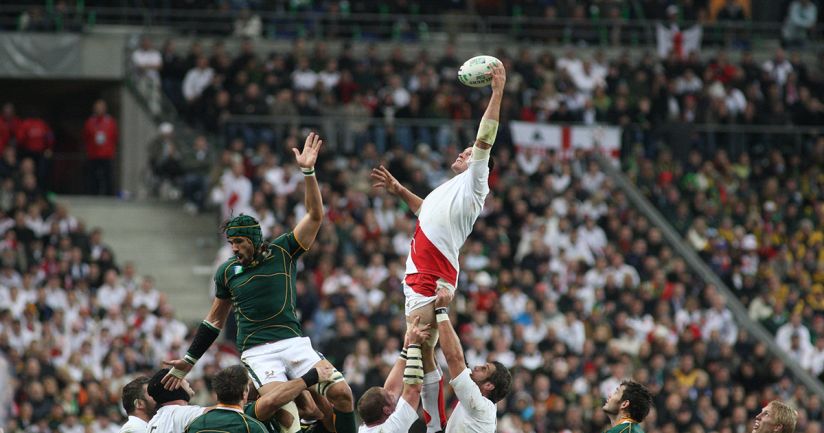Once upon a time... winning at home, what a challenge! (2003-2015)
At the launch of the Rugby World Cup on September 8 in France, dive into the small and big stories of this "gentlemen's" sport. Are you ready? So kick off! Today, we focus on the pressure! Yes, the pressure of hosting the world's greatest rugby competition... Part 2: tournaments held between 2003 and 2015.

2003: the only World Cup won by a team from the Northern Hemisphere
The first World Cup of the 21st century was a milestone in the young event's history. After the Southern Hemisphere's stranglehold of the event (previously won by New Zealand, Australia and South Africa), a northern team finally won rugby's greatest prize. The English were favourites upon their arrival in Australia, and they lived up to their billing by beating the Wallabies in a nail-biting final thanks to a drop goal by the legendary Jonny Wilkinson in the final minute of extra time. England had comfortably beaten France in the semi-final in the torrential Sydney rain, although the French scored the only try.
2007: hosted by France, whose best performance was in… Cardiff!
In 2007, France organised the Rugby World Cup for the first time although – to obtain their votes – some matches were awarded to Cardiff and Edinburgh. And that's why, following a defeat to Argentina in their first match that meant they only finished second in their group behind the latter, the French had to travel to Cardiff to play the invincible All Blacks in the quarter-finals. Yet again, though, they achieved the impossible in spectacular fashion, winning 20-18 thanks to their dogged defence. This was the day that Thierry Dusautoir, who wasn't due to take part in the tournament (he replaced Elvis Vermeulen, injured in the run-up to the event) came into his own with a record 38 tackles and a decisive try. Exhausted, as is often the case after a match like that, Les Bleus came up short against the English in the semi-final. England were in turn beaten by South Africa in the final at the Stade de France.
2011: from fishing on the Waikato River to national hero
New Zealand, who had been unable to win a second World Cup since 1987, were under immense pressure as tournament hosts, especially as the country had never before held such a global event on home turf. However, the All Blacks, who seemed unstoppable, had lost their fly-halves for crucial matches following injuries to Dan Carter and then Colin Slade. The team's coaching staff wanted to call up Stephen Donald to replace third-choice fly-half Aaron Cruden. But Beaver, as he was nicknamed, who had given up on his international career, had gone fishing in a New Zealand backwater and nobody was able to get a hold of him. He finally joined up with the squad before the quarter-finals having not kicked a ball for six weeks and remained on the substitutes' bench. However, in the final he replaced the injured Cruden after half an hour and scored the penalty that helped his team squeeze past France 8-7.
2015: England's worst nightmare
Four years later, it was the English who were under pressure as host nation. England were convinced they would win their second Webb-Ellis trophy. However, they found themselves in the pool of death and lost to both Australia and Wales, which meant that for the first time England failed to make it out of the group stage, and were thus mere spectators as the All Blacks eased their way to a third World Cup. At least the host nation could be proud of organising a record-beating event in terms of spectators (2.47 million tickets sold, with stadia 98% full on average) and revenue (£245 million).
Source: Archives Societe Generale